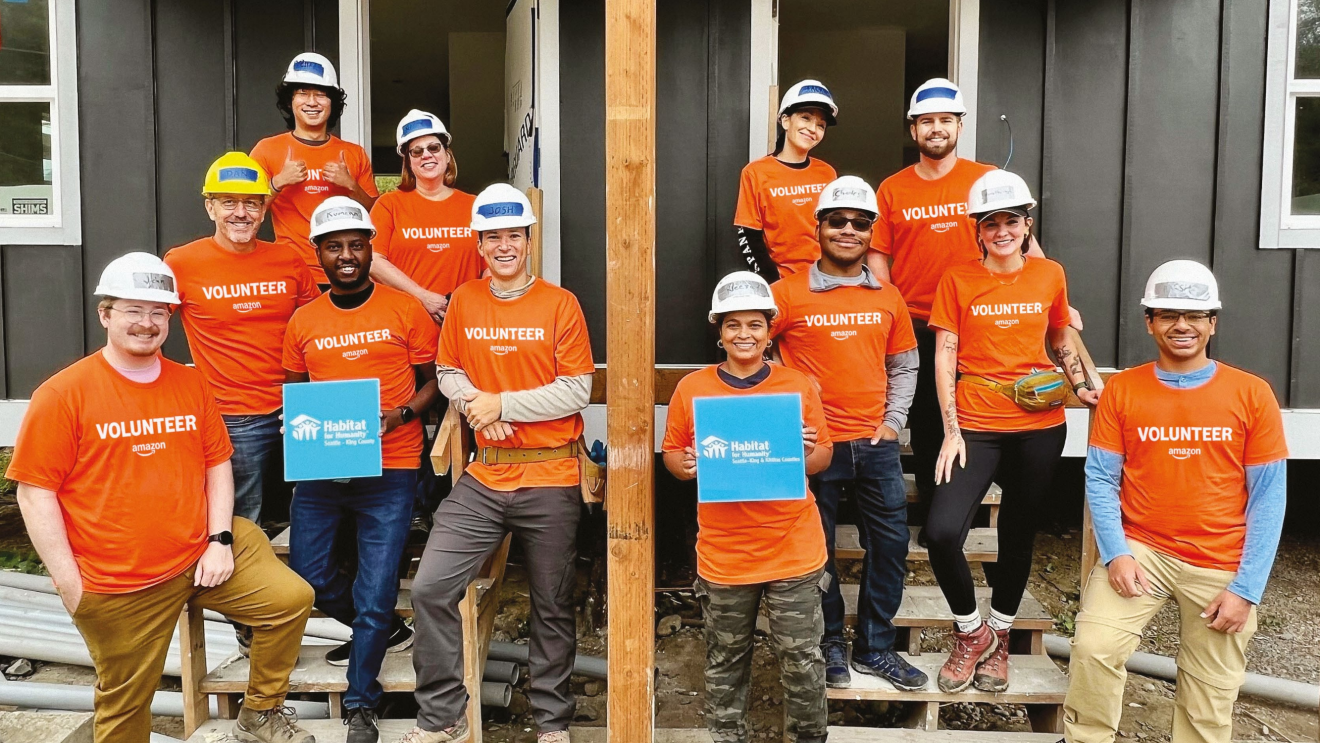Written by Hadi Partovi, founder and CEO at Code.org and Jeff Wilke, former CEO of Amazon Worldwide Consumer
Learning computer science is crucial in our increasingly digitized, technological world. Computer code, algorithms, and artificial intelligence help us in just about everything we do, from shopping and communicating to finding novel cures for deadly diseases. Studying the subject sets up students for academic, professional, and personal success, regardless of the path or career they pursue.

Among these students, there will be those who see themselves as software engineers who write the next piece of code that fundamentally transforms the world. But the diversity gaps in today’s technology workforce are a glaring reminder that not all students are afforded that vision.
To level the playing field and continue closing these gaps, Code.org and Amazon are excited to announce the development of a first-of-its-kind approach for the AP Computer Science A (CSA) Java programming curriculum. Designed with equity at its core, this curriculum is intended to empower every student, regardless of their background, to envision themselves using computer science to bring their dreams to life.
Closing the gap
According to the College Board, Black students who take the Advanced Placement Computer Science A (AP CSA) exam are seven times more likely to study computer science in college. In 2020, while Black students made up 15% of the U.S. student body, they comprised only 3.5% of AP CSA exam takers—down from 3.9% in 2019 and largely flat for the past several years. Just 14% of the 70,000 students who took the AP CSA exam were from underrepresented racial/ethnic groups,* and only 25% of students identified as female.
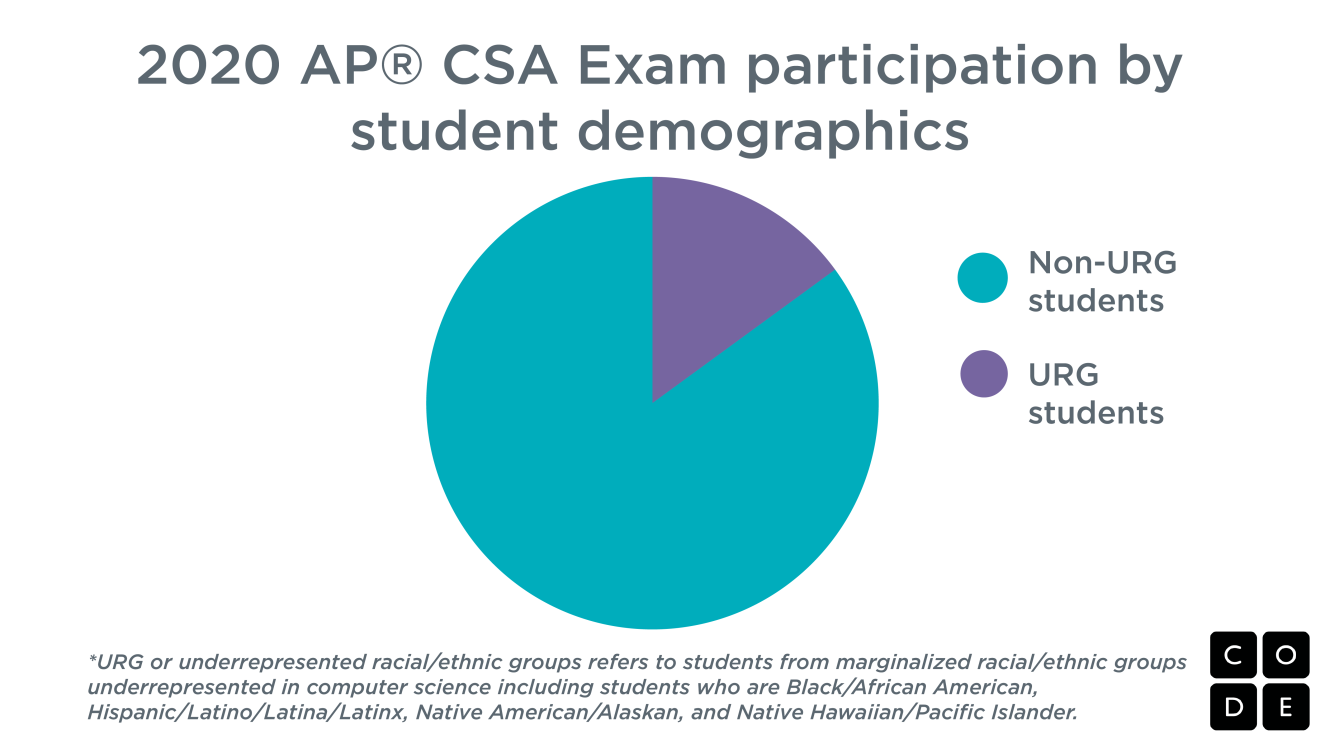
Amazon’s signature computer science education program, Amazon Future Engineer, is trying to help close those gaps by donating $15 million to Code.org over three years. The money will support the creation of the new equity-minded curriculum and other initiatives designed to reach more students from underrepresented groups. The initiatives aim to increase student awareness of academic and career pathways in computer science as well as equip them to be successful in college-level computer science and beyond.
Working together, we have our eyes set on an ambitious goal of doubling the participation of students from underrepresented groups in AP CSA within five years of the course’s launch.
Reimagining Advanced Placement CSA
AP CSA courses have traditionally focused on the building blocks required to design solutions to problems through programming. Creating this new curriculum with equity in mind means reimagining the structure and pedagogy. We need to not only teach the technical building blocks to successfully prepare students for the AP exam, but also excite and inspire a wide range of students and engage them in the various ways they learn.
This high level of attention to equity, excitement, and engagement is something teachers expect from Code.org.
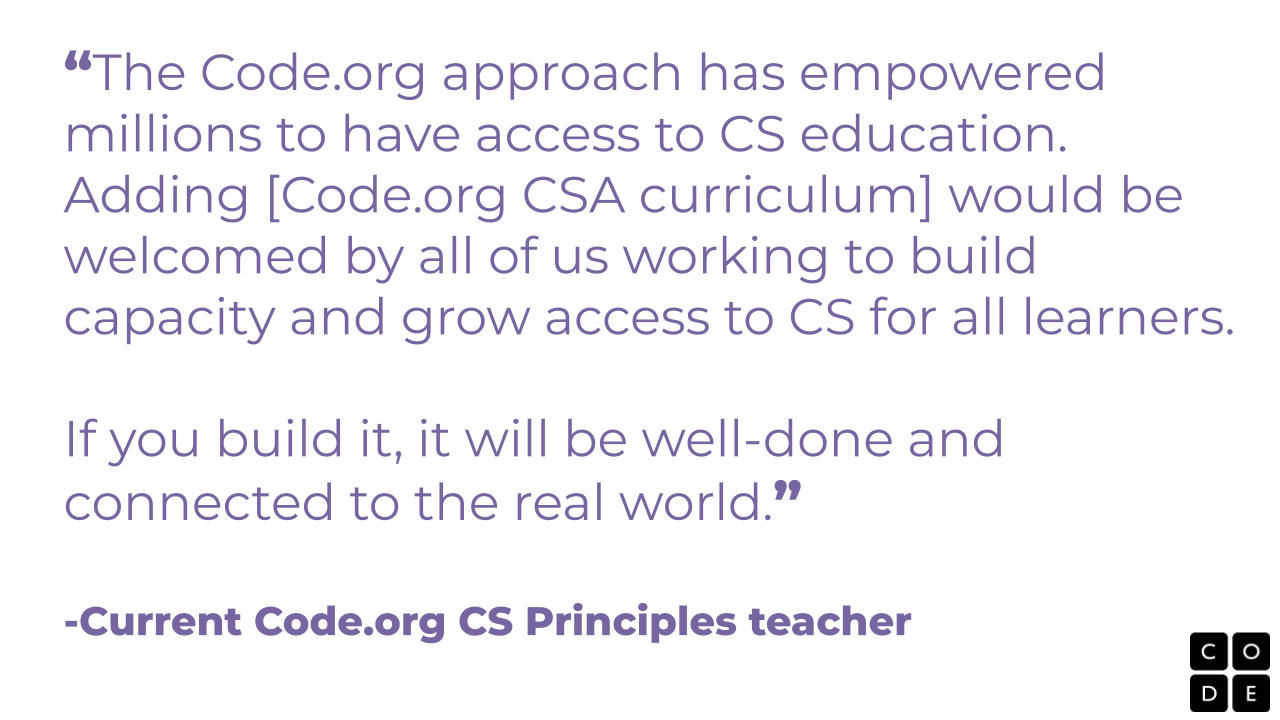
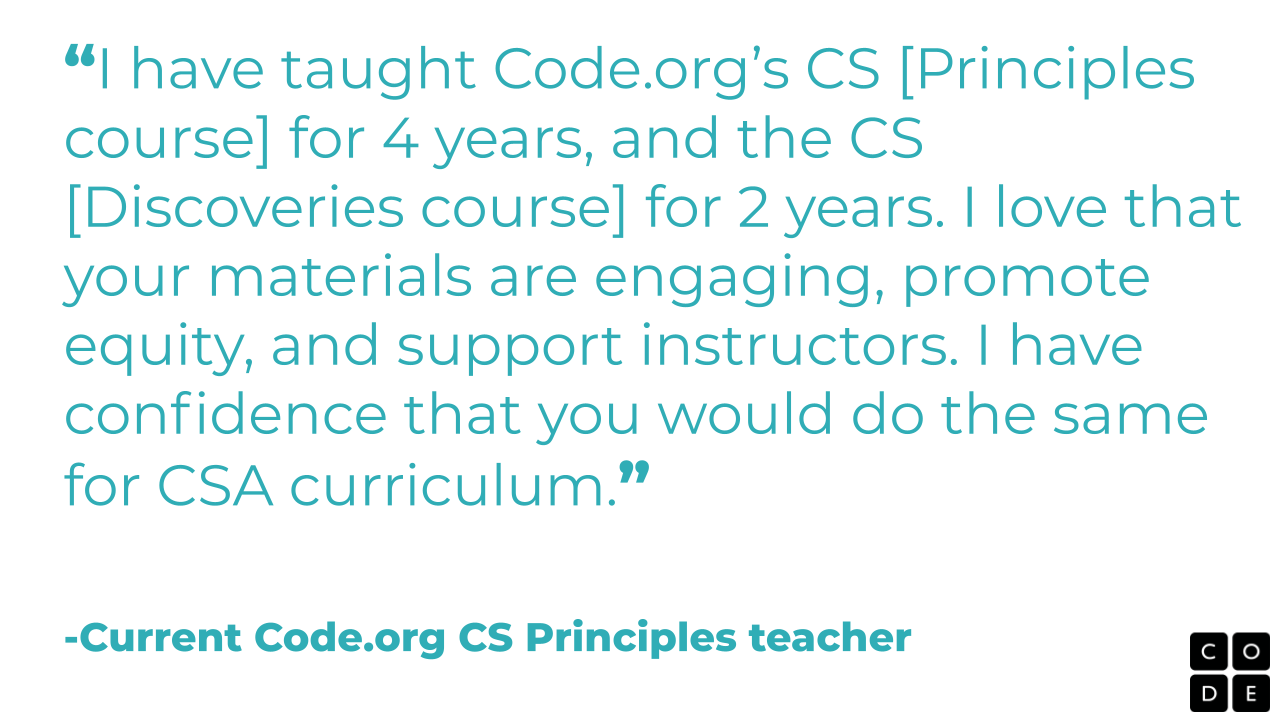
Code.org’s approach will focus on equity in the following ways:
- The curriculum is designed for equity and considers cultural references and learning styles in every facet. That includes vocabulary, visuals, and the sequence of concepts taught. Code.org’s CSA will use strategies from Culturally Responsive Teaching pedagogy.
- Acknowledging diversity of experiences and interests is essential to equity. Students will investigate real-world problems during class activities and make connections to their own work. Projects will be carefully designed to be instructive yet more open-ended, without making assumptions about students’ cultural background or life experiences, enabling students to demonstrate mastery of concepts and engage in their passions.
- Diverse representation brings to life “Software Engineering for All.” A new “Software Engineering for All” narrative will help students envision themselves as software engineers, and the curriculum will extensively use videos populated with diverse presenters who work in technology to help students visualize opportunities for their own futures.
- Students will develop and model valuable, real-world career skills. In addition to skills like tracing code segments and documenting code, Code.org’s new curriculum will incorporate collaboration and career skills that go beyond the College Board's CSA framework. For example, curriculum tools will include a system for students to do code reviews, a common quality assurance practice in the technology industry.
Support from higher education, state governments, and industry leaders
This new curriculum for AP CSA already has support from significant stakeholders. State leaders from Georgia, Oklahoma, New Mexico, Ohio, and Pennsylvania have pledged to expand AP CSA during the 2021-22 school year and committed to requiring all high schools in their states to offer computer science.
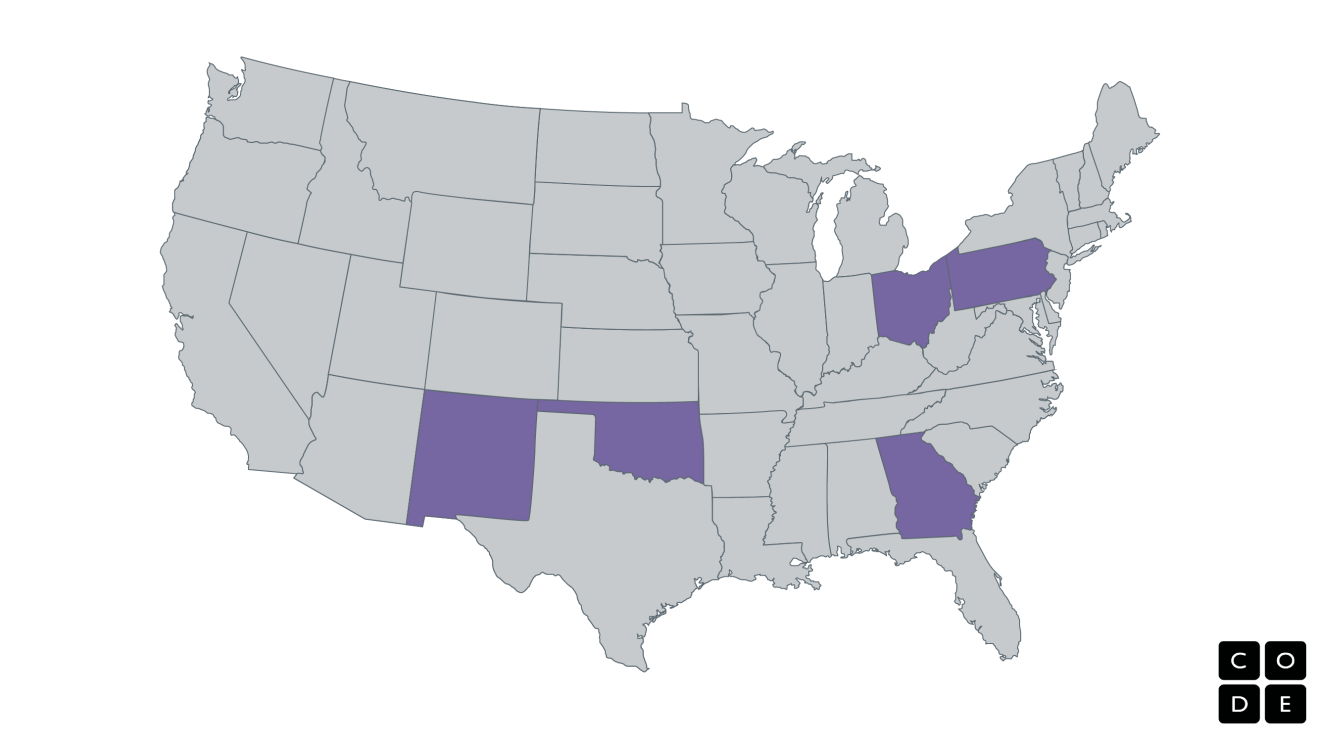
“New Mexico has made great progress to increase the number of computer science courses offered across our state. My administration is pleased to join this partnership to create new opportunities for equitable access and participation in AP Computer Science A. We look forward to ensuring all New Mexico students have the opportunity to learn this essential subject." — New Mexico Governor Michelle Lujan Grisham
“Together, we are excited to announce our partnership to expand computer science education in Oklahoma through this AP Computer Science A pilot. With this partnership and help from the Oklahoma Public School Resource Center, we will be able to provide all students across the state, particularly those from historically underrepresented groups, access to this critical subject. This is an important step along the way for Oklahoma to become a leader in computer science education.” — Oklahoma Governor Kevin Stitt and State School Superintendent Joy Hofmeister
"Ohio is proud to partner with Code.org and Amazon to help ensure every Ohio student has an opportunity to reach their full potential. Together, we will work to reach diverse groups of Ohioans and inspire them to reach the next level in computer science – AP Computer Science A. This is part of a larger effort by our administration to expand access to computer science classes. We believe every student should have this opportunity.” — Ohio Governor Mike DeWine
“The Georgia Department of Education is committed to transforming computer science education—from an elective available for a few students, to a foundational educational discipline accessible to all. This new AP Computer Science A curriculum will be designed to inspire, support, and prepare students from all backgrounds who want to pursue a CS path.” — Georgia State School Superintendent Richard Woods
“Pennsylvania is making great strides to provide students with a quality computer science education that prepares them for success in their future. We are proud to continue our partnership with Code.org and to bring their new AP Computer Science A curriculum to Pennsylvania. A strong computer science education can break down barriers and open a world of opportunities for all students.” — Pennsylvania Governor Tom Wolf
In addition to working with states, Code.org is forming both an Education Advisory Council—composed of representatives from nonprofits, colleges, and universities, including Historically Black Colleges and Universities—and an Industry Advisory Council with representatives from a variety of employers. These councils will provide feedback in the development process to ensure the new curriculum for AP CSA best prepares students for the next step in their education and careers.
Code.org will launch the new curriculum for AP CSA and make it available for all schools starting in the 2022-23 school year. Teachers can sign up for professional development workshops to teach the material in 2022. Teachers and others can sign up to receive news and updates as the curriculum development progresses.
What’s next
Code.org and Amazon believe every student benefits from learning computer science in the 21st century. Not every student will or needs to become a programmer, but every student should be able to envision themselves as a software engineer and to see people who look like them in these roles. As a society, we need our software engineers to represent all of us, and we need to design and create solutions with all of us in mind.
To achieve this vision, we must foster and nurture diversity in computer science education, from the students sitting in high school and college classrooms to the professionals working in the tech industry. Only then can we begin to change the face of computer science.
*URG or underrepresented racial/ethnic groups refers to students from marginalized racial/ethnic groups underrepresented in computer science including students who are Black/African American, Hispanic/Latino/Latina/Latinx, Native American/Alaskan, and Native Hawaiian/Pacific Islander.



